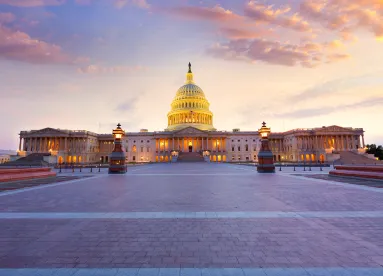NLRB News.
Here are a couple recent developments at the National Labor Relations Board (NLRB) that are worthy of note:
-
Over the last two decades, the Board has flip-flopped three different times on the question of whether students who perform services—including teaching and conducting research—for compensation at private colleges or universities in connection with their studies are “employees” under the National Labor Relations Act. On September 23, 2019, the Board issued a notice of proposed rulemaking that would treat such individuals as students, not employees, and therefore put them outside the Board’s jurisdiction. Late last week, the Board extended the comment period, which was originally scheduled to close on November 22, 2019, to December 16, 2019.
-
On October 21, 2019, General Counsel Peter B. Robb issued a memorandum interpreting changes made in 2017 to the Board’s Rules and Regulations regarding electronic filing. The memorandum requires all “affidavits, correspondence, position statements, documentary or other evidence in connection with unfair labor practice or representation cases” to be filed through the Board’s e-filing system (but not via email). This change is effective immediately, though there will be a 90-day grace period for documents filed through other means.
Labor Committee Hearings.
The U.S. House Committee on Education and Labor was busy this week as it held two important hearings.
-
On October 22, 2019, the Civil Rights and Human Services Subcommittee held a hearing titled “Long Over Due: Exploring the Pregnant Workers’ Fairness Act (H.R. 2694).” The bill is intended to address gaps in workplace protections for pregnant workers. Borrowing from the Americans with Disabilities Act, the Pregnant Workers’ Fairness Act would require employers to provide reasonable accommodations for pregnant workers with known limitations, unless doing so would result in undue hardship to the employer.
-
On October 23, 2019, the Health, Employment, Labor, and Pensions Subcommittee and the Workforce Protections Subcommittee held a joint hearing titled “The Future of Work: Preserving Worker Protections in the Modern Economy.” The hearing focused on independent contractors, contingent workers, and so-called “gig” workers. Democrats on the committee offered the PRO Act (which has already passed the committee) as a solution to what they perceive is a lack of legal protections for these workers. Democrats and their witnesses also advanced the concept of centralized, or sectoral, bargaining.
House Addresses Outsourcing.
Late last week, the U.S. House of Representatives passed the Outsourcing Accountability Act of 2019 (H.R. 3624). The bill would require public companies to include in their annual Securities and Exchange Commission (SEC) disclosures the number of employees “domiciled in the United States,” as well as those who live in other countries. Companies would also be required to include the annual percentage change in these numbers. Two Republican representatives voted in favor of the bill (Chris Smith (NJ) and David McKinley (WV)), though the U.S. Senate is unlikely to take up the measure.
DOL to Allow Expanded Electronic ERISA Disclosures?
On October 23, 2019, the U.S. Department of Labor’s (DOL) Employee Benefits Security Administration issued a notice of proposed rulemaking that “would allow plan administrators who satisfy specified conditions to provide participants and beneficiaries with a notice that certain disclosures will be made available on a website.” The proposed safe harbor would be in addition to—not replace—the 2002 electronic delivery safe harbor, which means that plan sponsors could choose one, the other, or both as a means to deliver electronic disclosures required under the Employee Retirement Income Security Act (ERISA). The proposal also includes a request for information that posits over 20 questions on how to improve the effectiveness of ERISA disclosures. Comments on the proposal must be submitted on or before November 22, 2019.
Congress Honors NASA Pioneers.
President Donald Trump is poised to sign into law a bill passed late last week by the Senate honoring the lives and careers of NASA’s pioneering African-American female mathematicians. The Hidden Figures Congressional Gold Medal Act will award Congressional Gold Medals to Katherine Johnson and Dr. Christine Darden, and posthumously award Congressional Gold Medals to Dorothy Vaughan and Mary Jackson. As chronicled in Margot Lee Shetterly’s book Hidden Figures: The American Dream and the Untold Story of the Black Women Mathematicians Who Helped Win the Space Race, and the subsequent film of the same name, these four women (and others) played integral roles in testing aircraft during World War II, conducting research on supersonic flight, launching the Voyager probes, and landing the first man on the moon. The bill also provides for “One gold medal in recognition of all women who served as computers, mathematicians, and engineers at the National Advisory Committee for Aeronautics and the National Aeronautics and Space Administration between the 1930s and the 1970s.”




 />i
/>i

